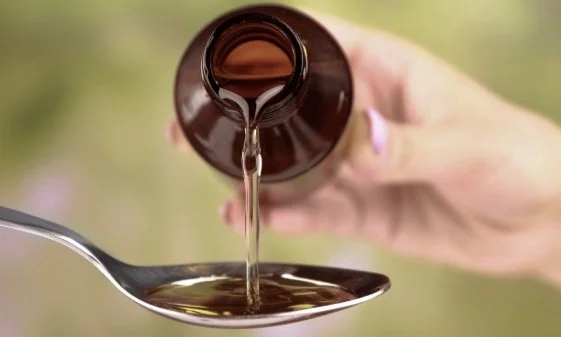Child Deaths From Cough Syrups Point to Drug Safety Failures
‘Deeply Concerned,’ Says the World Health Organization
October 12, 2025
At least 22 children have died in Madhya Pradesh and Rajasthan since September after consuming Coldrif, a cough syrup found to contain fatal levels of diethylene glycol, a harmful chemical found in products like coolants and industrial cleaners. The World Health Organization (WHO) has expressed concern about the failure of India’s domestic drug regulatory system to enforce proper screening and manufacturing standards for medicines sold within the country.
The WHO criticised the “regulatory gap” and warned of the risk of such adulterated medicines entering global markets through unregulated export routes. The organisation said it had contacted India’s Central Drugs Standard Control Organisation (CDSCO) for more information. The CDSCO reportedly responded that Coldrif, along with two other brands, Respifresh TR and ReLife, had tested positive for diethylene glycol (DEG) contamination.
All three products have since been recalled and their manufacturers instructed to halt production of all medical goods.
WHO noted that the CDSCO claimed these syrups were not exported, but also flagged the danger of their reaching foreign markets via unofficial distribution channels.
Coldrif was manufactured by Sresan Pharmaceuticals, a small Tamil Nadu-based company. The syrup reportedly contained 48.6 percent DEG, far above the 0.1 percent maximum limit. DEG is a toxic compound commonly found in brake fluid and antifreeze, and should never be present in any medicinal product.
The deaths began in September and continued into October, with the most recent reported in Nagpur, Maharashtra, where two children from Chhindwara district in neighbouring Madhya Pradesh died while undergoing treatment, according to The Strait Times. Most victims were under the age of five.
Apparently to reduce expenses, some manufacturers may use commercial-grade propylene glycol (PG), a thick liquid used to dissolve ingredients, which can be contaminated with DEG. A pharmaceutical-grade version of PG is available but is more expensive. Even tiny amounts of DEG can be fatal for children, often causing acute kidney failure.
This is not the first such incident in India. Deaths in West Africa and Central Asia have been linked to Indian-made syrups.
In February, a BBC investigation found that Aveo Pharmaceuticals, a Mumbai-based company, was supplying unlicensed opioid-based pills to West African countries, fuelling a public health crisis in Ghana, Nigeria and Côte d’Ivoire. The pills combined tapentadol, a strong opioid, with carisoprodol, an addictive muscle relaxant banned in Europe. Sold under names like Tafrodol, the pills were not licensed anywhere in the world. BBC Eye traced their distribution across West Africa and filmed inside Aveo’s factory with the director’s consent, capturing staff acknowledging the pills’ intoxicating effects. The combination posed severe health risks, including breathing problems, seizures and dangerous withdrawal symptoms.
With over 10,000 registered drug manufacturers in India, regulatory enforcement varies drastically across states. Testing infrastructure, random sampling and follow-up inspections are sparse and slow. While CDSCO is the national authority, much of the enforcement responsibility rests with under-resourced state drug controllers. As a result, the probability of substandard or dangerous products slipping through remains unacceptably high.
Immediate reforms are needed to close the gap. The CDSCO must introduce mandatory batch testing for DEG and ethylene glycol in all syrup-based formulations produced or sold in India, regardless of whether they are intended for export or domestic use. This screening should be carried out at the pre-clearance stage before release to the market, not merely in post-event investigations.
The use of commercial-grade PG in any pharmaceutical product must be criminalised and tracked through supply chain audits.
International trade channels must also be more strictly regulated. The Directorate General of Foreign Trade, in coordination with CDSCO, should conduct audits on supply chains feeding export markets, especially for high-risk formulations like paediatric syrups. Global buyers, especially from developing countries, often lack regulatory capacity and rely on India’s certifications. A failure to provide trustworthy products harms India’s global standing in pharmaceuticals and puts lives at risk.
You have just read a News Briefing by Newsreel Asia, written to cut through the noise and present a single story for the day that matters to you. Certain briefings, based on media reports, seek to keep readers informed about events across India, others offer a perspective rooted in humanitarian concerns and some provide our own exclusive reporting. We encourage you to read the News Briefing each day. Our objective is to help you become not just an informed citizen, but an engaged and responsible one.

